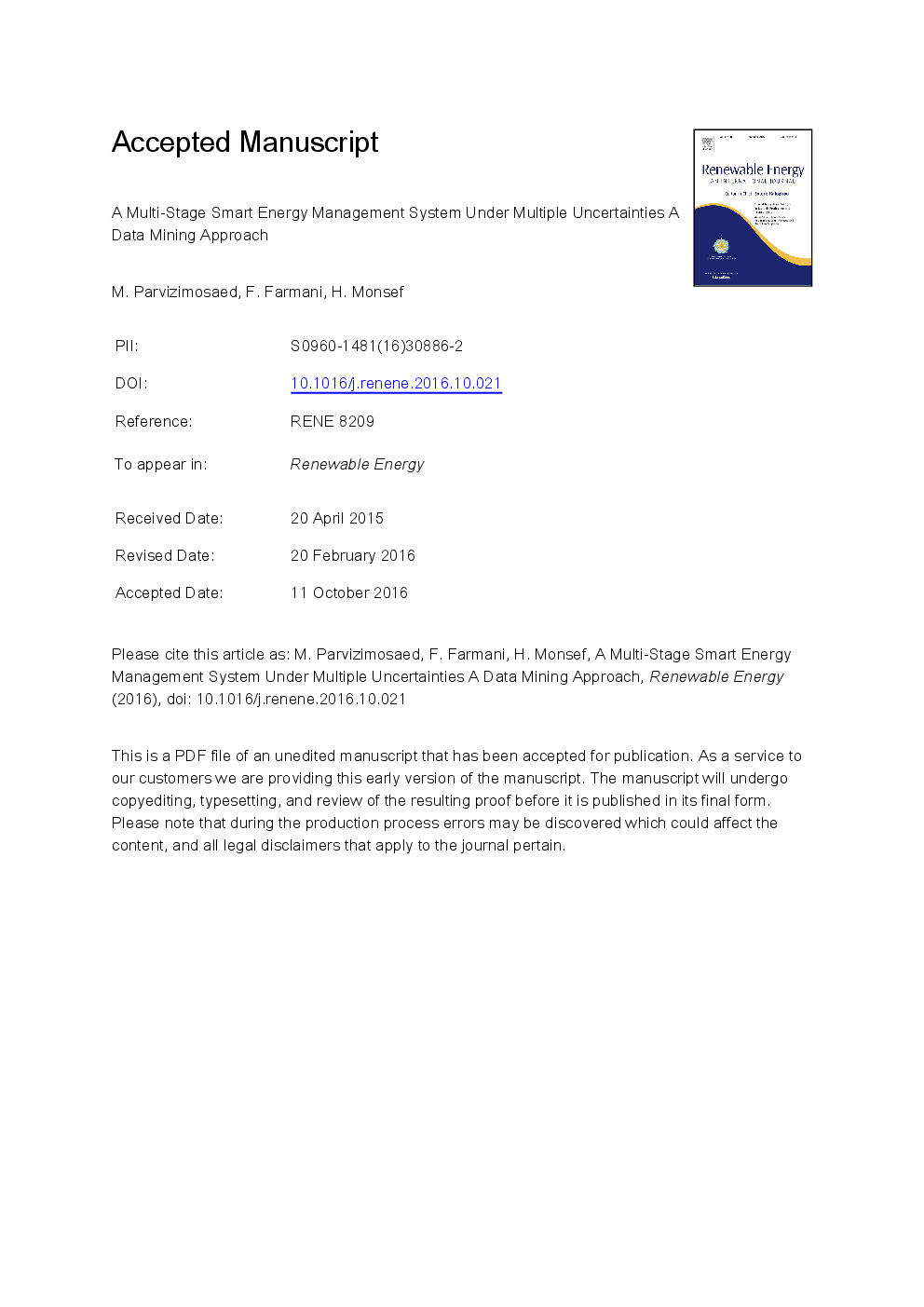ترجمه فارسی عنوان مقاله
یک سیستم مدیریت هوشمند چند مرحله ای تحت چندین عدم اطمینان: یک روش داده کاوی
عنوان انگلیسی
A multi-stage Smart Energy Management System under multiple uncertainties: A data mining approach
| کد مقاله | سال انتشار | تعداد صفحات مقاله انگلیسی |
|---|---|---|
| 107861 | 2017 | 34 صفحه PDF |
منبع

Publisher : Elsevier - Science Direct (الزویر - ساینس دایرکت)
Journal : Renewable Energy, Volume 102, Part A, March 2017, Pages 178-189
ترجمه کلمات کلیدی
مدیریت انرژی چند مرحله ای، الگوریتم داده کاوی، بهینه سازی چند هدفه، تصمیم گیری آفلاین و آنلاین،
کلمات کلیدی انگلیسی
Multi-stage energy management; Data mining algorithm; Multi-objective optimization; Offline and online decision making;

